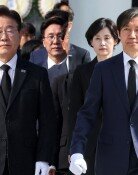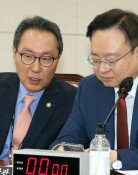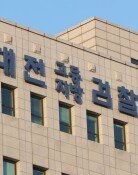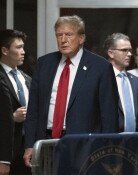Korea needs to reshape diplomatic strategy in the new TPP era
Korea needs to reshape diplomatic strategy in the new TPP era
Posted October. 07, 2015 10:16,
The Foreign Affairs and Trade Ministry said Tuesday it will actively examine joining the Trans-Pacific Partnership. On Monday, the U.S. and 11 other Pacific Rim countries have reached a deal on the largest trade-liberalizing pact in a generation. Korea had previously overlooked the meaning of TPP which was designed to solidify U.S. geopolitical position with China. Against this background, it is uncertain whether Korea can join the pact easily even if it examines it. The Korean government needs to reshape its foreign trade strategy.
U.S. Trade Representative Wendy Cutler had said in April 2013 that Korea could play the role of key position in regional supply chain that can be formed through TPP, thus recommending Korea join the pact. Her remarks were made after a month Japan announced its TPP participation. However, Korea virtually rejected the recommendation saying it has to focus all efforts in free trade deal with China. Later in November 2013, then Deputy Prime Minister Hyun Oh-seok expressed intention to start preliminary negotiations, to which the U.S. rejected.
TPP is not just a multilateral economic pact but also a diplomatic security alliance among advanced countries including U.S. and Japan against Chinas growing influence. Financial Times said TPP is a huge strategic and political victory for U.S. President Barack Obama and Japanese Prime Minister Shinzo, adding the pact goes beyond economic purposes and is a geopolitical move to counter the rise of China. TPP will start joined by 12 Pacific Rim nations but has high possibility of becoming a standard of international deal considering its huge influence.
Japan, which was lagging behind in terms of free trade deals, has jumped into a giant market including Canada and Malaysia with lower tariffs, and its competition with Korean products is likely to intensify. Trade, Industry and Energy Minister Yoon Samg-jick told at a national audit Tuesday that TPP will not un-benefit Korean cars, but this is a short-sighted view. Due to accumulation provision of free trade rules of origin, not only cars but also car components, textile and display industries will move to TPP regions including Vietnam, raising concerns of manufacturing hollowing out.
Competition among the U.S., Japan and China is intensifying over Northeast Asia. Korea has grown through open-door policy and active trade, and needs to ride on the global trend and come up with survival strategies in the new 21st century order.
Headline News
- Israel prepares for retaliation against Iran
- Samsung reclaims top spot, surpassing Apple in smartphone market
- 77% of Koreans in 20s and 30s are 'Kangaroo Tribe' due to job crisis
- KBO referees embroiled in controversy over ABS decision concealment
- Inflation, oil price surge put double shock on global economy







